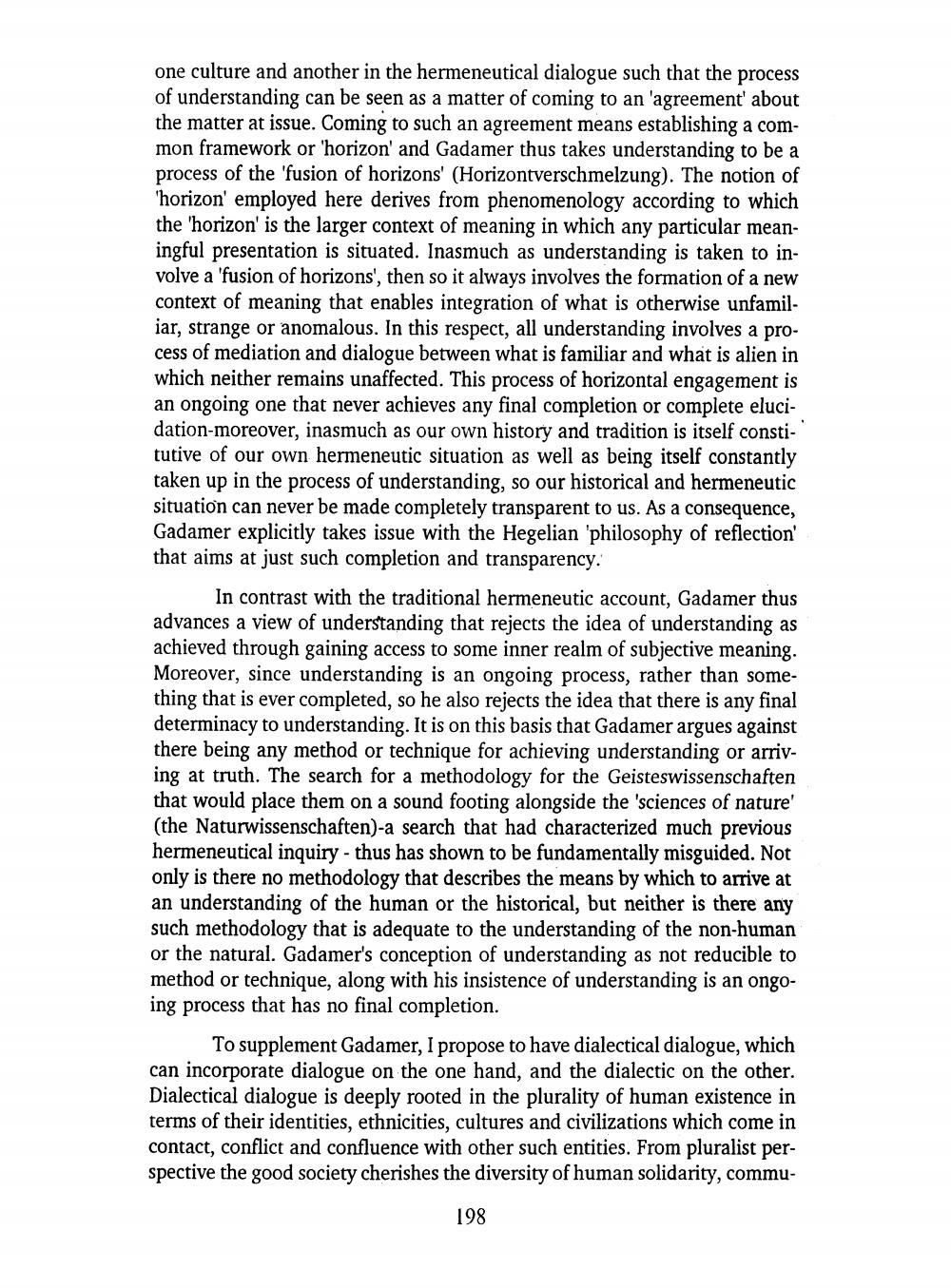________________
one culture and another in the hermeneutical dialogue such that the process of understanding can be seen as a matter of coming to an 'agreement' about the matter at issue. Coming to such an agreement means establishing a common framework or 'horizon' and Gadamer thus takes understanding to be a process of the 'fusion of horizons' (Horizontverschmelzung). The notion of 'horizon' employed here derives from phenomenology according to which the 'horizon' is the larger context of meaning in which any particular meaningful presentation is situated. Inasmuch as understanding is taken to involve a 'fusion of horizons', then so it always involves the formation of a new context of meaning that enables integration of what is otherwise unfamiliar, strange or anomalous. In this respect, all understanding involves a process of mediation and dialogue between what is familiar and what is alien in which neither remains unaffected. This process of horizontal engagement is an ongoing one that never achieves any final completion or complete elucidation-moreover, inasmuch as our own history and tradition is itself constitutive of our own hermeneutic situation as well as being itself constantly taken up in the process of understanding, so our historical and hermeneutic situation can never be made completely transparent to us. As a consequence, Gadamer explicitly takes issue with the Hegelian 'philosophy of reflection that aims at just such completion and transparency.
In contrast with the traditional hermeneutic account, Gadamer thus advances a view of understanding that rejects the idea of understanding as achieved through gaining access to some inner realm of subjective meaning. Moreover, since understanding is an ongoing process, rather than something that is ever completed, so he also rejects the idea that there is any final determinacy to understanding. It is on this basis that Gadamer argues against there being any method or technique for achieving understanding or arriving at truth. The search for a methodology for the Geisteswissenschaften that would place them on a sound footing alongside the 'sciences of nature' (the Naturwissenschaften)-a search that had characterized much previous hermeneutical inquiry - thus has shown to be fundamentally misguided. Not only is there no methodology that describes the means by which to arrive at an understanding of the human or the historical, but neither is there any such methodology that is adequate to the understanding of the non-human or the natural. Gadamer's conception of understanding as not reducible to method or technique, along with his insistence of understanding is an ongoing process that has no final completion.
To supplement Gadamer, I propose to have dialectical dialogue, which can incorporate dialogue on the one hand, and the dialectic on the other. Dialectical dialogue is deeply rooted in the plurality of human existence in terms of their identities, ethnicities, cultures and civilizations which come in contact, conflict and confluence with other such entities. From pluralist perspective the good society cherishes the diversity of human solidarity, commu
198




